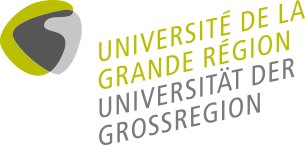Toolbox for cross-border cooperation in teaching
This toolbox aims at facilitating cross-border cooperation in teaching by supplying sample documents and best practices. It is based on the following forms of cooperation
Study programmes with joint and double degrees
Features:
- Curricula closely coordinated between the partner universities (e.g. joint study schedule)
- During the course of studies, students are enrolled at all the partner universities; however, fees are only charged at their respective home universities
- A "substantial" portion of the programme will be completed at a partner university
- Any relevant examination results acquired at a partner university are automatically recognised
- Programmes between Germany and France (as well as third countries): Support for study programmes and student mobility is often accomplished via the Franco-German University (DFH)
- Degrees: in the form of either a joint degree diploma stating the degrees conferred by the partner universities, or two to three separate diplomas issued by the respective partner universities (double or triple degree), referring to the joint degree programme
- Erasmus Mundus programmes: see European Commission
Useful documents and information:
- Summary of existing cross-border study programmes in the Greater Region
- Example of a cooperation agreement (0,18 MB-PDF-FR/DE) (including grade conversion table and relative ECTS grade conversion)
- Examples of courses of studies (0,13 MB-PDF-FR/DE) for bi- and trinational Bachelor and Master programmes
- Example of a common course catalogue (curricula) (0,072 MB-PDF-FR/DE/EN)
Joint Degrees
Examples of degree documents:
- Joint degree diplomas: trinational Bachelor and Master degrees (available on request at unigr-info@uni.lu)
- Diploma supplement of a trinational Master programme in English (0,27 MB-PDF-EN), German (0,48 MB-PDF-DE) and French (0,47 MB-PDF-FR)
- Certificate and transcripts of records: trinational Bachelor programme (0,08 MB-PDF-FR/DE/EN)
Note: Joint degree diplomas including a French university must have a format that complies with the national regulations in order to be automatically recognized in France. These regulations stipulate, among other things, that the certificates are to be signed by the "Recteur de l'Académie" and printed on the paper of the "Imprimerie national"; see:
- French legal text / "Circulaire" (0,019 MB-PDF-FR)
- Appendix "diplôme conjoint" (0,09 MB-PDF-FR)
- Appendix "diplôme français" (0,07 MB-PDF-FR)
- Appendix "document accompagnant diplôme français" (0,05 MB-PDF-FR/DE/EN)
If the joint degree diplomas do not comply with the French regulations, in some of the degree programmes graduates have the possibility to receive, on request, a "national" diploma from the French partner university referring to the joint degree programme.
Study programmes with integrated studies abroad, mobility slots and/or specific cooperation agreements
Features:
- Mobility periods integrated in the curricula ("mobility slots", e.g. an integrated semester abroad or free elective course)
- Student exchange and recognition of examination results on the basis of arrangements or cooperation agreements
- Enrolment fees should only be charged by the home university
- Possible equivalence tables taking into account the Credit Points (in case of differences, pragmatic arrangements should be found); if applicable, definition of how many Credit Points can be obtained at the partner university
- Forms: e.g. Erasmus (individual course of study) or «UniGR agreement» (recommended course of study)
Incentives for student mobility provided by UniGR cooperation agreement:
- Recommended stay at the partner university
- No enrolment fees at the partner university
- Students can attend courses and take exams at the partner university (defined maximum number of Credit Points)
- Language requirements: "adequate" knowledge of partner language or English
- Possibility to take exams in English or in the native language (by arrangement)
- Transcript of records for certifying study achievements
- Automatic recognition of study achievements (Credit Points / ECTS)
- Equivalence in case of ECTS differences
- Possible support in finding accommodation
Useful documents and information:
- Example "UniGR cooperation agreement" (0,18 MB-PDF-FR/DE)
- UniGR Learning agreement (1,98 MB-PDF-EN)
- Example of equivalence table (0,18 MB-PDF-DE)
- UniGR Student status (not available for the moment)
- UniGR Mobility Fund
Joint courses
Features:
- Joint courses offered by lecturers
- Recognition of the courses has to be arranged at each university
- Form: e.g. block seminars in "rotation system" (e.g., one block seminar at each of the partner universities), see example: trinational seminar "Dealing with knowledge in multilingual contexts"
Useful documents and information
In addition, you will find information and documents that can be useful for many forms of cooperation in studying:
- UniGR search engine Study Offer of the partner universities
- Academic calendars of the partner universities
- UniGR Student Status and Mobility Guide
- UniGR Mobility Fund
- UniGR Learning Agreement (1,98 MB-PDF-EN)
- Example for grade conversion:
|
|
Belgique, Luxembourg, France |
Allemagne |
|
|
|
Excellent (B,L) Très bien (F: max. 16) Bien |
18-20 16-18
14-15,9 |
1,5-1,0
2,5-1,6 |
Sehr gut
Gut |
|
|
Assez bien |
12-13,9 |
3,5-2,6 |
Befriedigend |
|
|
Passable |
10-11,9 |
4-3,6 |
Ausreichend |
|
|
Non admis |
5-9,9 |
5 |
Nicht ausreichend |


